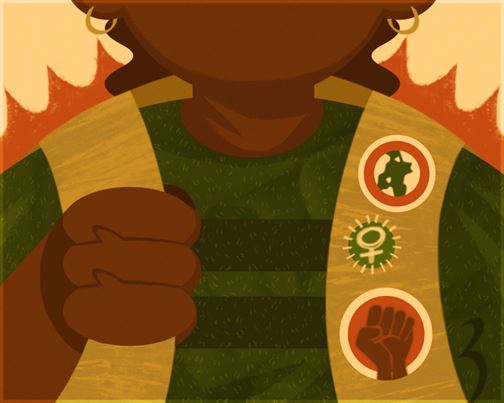Over the past seven months, the United States has seen its most significant spike in social activism in decades. Americans all over the country have taken to the streets both physically and digitally to express their discontent for a lack of police accountability, fatal police brutality and the overall treatment of people of color in the United States.
Since the birth of American youth culture, transitions from outdated ideals to fresh, forward thinking has been fueled and led by this country’s young people. To older generations, it is very easy to immediately dispel anything someone of a younger generation has to say simply because they’re too young and “don’t know what they’re talking about.”
Nevertheless, young people hold a responsibility rooted in both the past and the future to do their part in shaping a society they believe to be morally righteous.
While there remains a sharp divide between American generations, people of all ages must do their best to recognize how in the scope of contemporary history, the similarities between different age groups are more significant than their differences.
Earlier this year, a trend circulated through social media platforms poking fun at members of the baby boomer generation where young users would derogatorily respond to older people by saying, “OK, boomer.”
It is crucial to remember it was members of the baby boomer generation who ignited and led a counterculture against the American establishment in the mid-20th century. The Civil Rights Movement, hippie movement and second wave of feminism were all made possible by the same people who today are too commonly dismissed because of their old age.
Furthermore, the people who participated and blazed those trails for cultural progression should recognize how difficult those goals are to accomplish and do their best to support the work today’s young people are doing and recognize its potency.
The change currently in motion has far more reach than what occurred 60 years ago. Through social media and other internet outlets, petitions have never been more accessible. Video evidence of injustices being fought are being viewed at a higher capacity than ever before. Even if it is not shown on the evening news, it will be seen and shared tenfold on Twitter, Instagram, etc.
This ongoing shift in political and social justice awareness and involvement has the means to affect change in a monumental way. While police killings of people of color are certainly nothing new, the response to those of George Floyd and Breonna Taylor has been undoubtedly more noteworthy than those passed.
Despite how imperative change is on both the global and national level, the responsibility of young people to participate does not have to be taken up on that large of a scale. Activism can be as small as speaking up at a town hall meeting, contacting lawmakers or even just voting in local elections.
Activism by college students is ever present within Montclair State University. Our campus has seen protests and marches against the Trump administration as well as held festivals for environmental awareness and justice.
Students can also advocate for their beliefs by joining organizations like the Student Government Association and help amplify the student body to its administrators.
Students can join The Montclarion to help keep all members of the university informed as well as keep university leaders in check.
The youth of today owe it to themselves, but, more importantly to the generations that will follow to stand up for what is right and pave a road to a more equitable society.
And if 30 years from now, today’s young people have their ideals challenged by their own children, they should feel obligated to keep their ears and minds open and learn to feel comfortable in the back seat of change.



